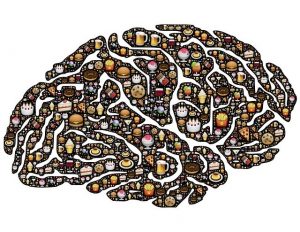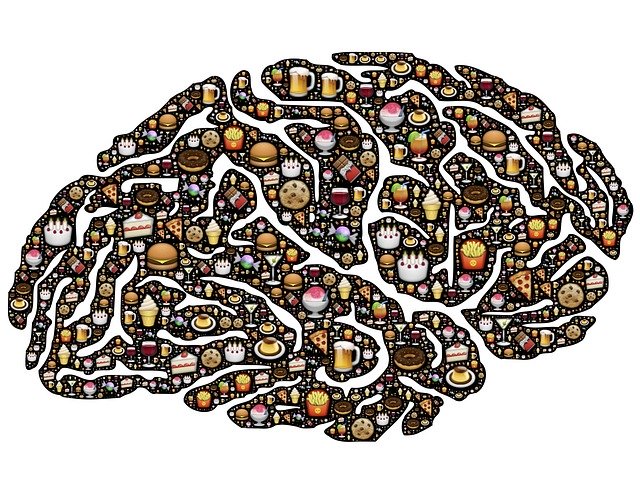Whether it’s a commitment to a “Dry January,” or a suspicion that our relationship with a substance has tipped over the line from “fun” to “dependency,” many of us will reach a point when detoxing and sobriety seem like the right things to do for our health. While different types of substances have unique impacts on the body, they can all wreak havoc on our nutrition, digestion and mood. If we don’t take steps to resolve those imbalances, substance-free living can be more uncomfortable and less enjoyable than it needs to be. Harnessing the power of food as medicine can help you feel better, faster. This series of articles will give you the tools you need to support your ongoing recovery with simple eating and wellness solutions that have a big impact.
It’s not only physical health that benefits from detoxing. You can create a foundation of holistic recovery that transforms every aspect of how you feel every day. Developing the right lifestyle routines will increase radiant, high-energy health. Leveraging a renewed commitment to care for your body also allows you to stabilize a sense of emotional and mental clarity. What and how you eat, your sleep patterns, physical activity levels, and regular meditation all work together to create a positive ripple out effect on emotional balance. We’ll cover how to use these strategies to help you develop a joyous and centered substance-free life that goes far beyond just “not picking up” a drink or drug.
In this series, we’ll review some of the common health and nutrition consequences of habitual substance use, as well as what to expect during the period of early detox. We’ll outline a sane and evidence-based approach to eating that supports the detoxification process. In the rest of the series, we’ll take a closer look at the impact of the most commonly used substances, identifying specific and integrated health solutions that are tailored to the unique challenges of each. Finally, we’ll explore ways to support enhanced health and wellness as we move toward ongoing abstinence and longer-term, vibrant recovery.
Remember, detox diets don’t work until you’re actually applying the principles to what and how you eat every day. You’ll support your overall energy and clarity when you begin incorporating the nutrition solutions outlined here. If it feels too overwhelming to do all at once, select one tip to work on every week as you build your foundation of high-energy, healthy, and joyous substance-free living.

Health Impacts of Over-Indulging
Let’s look at some of the general health and nutrition effects of using mood-altering substances. If we’ve had to make a conscious effort to abstain from regular consumption of alcohol or other substances, we may have already negatively impacted our quality of life and our health (click here to see where your intake level measures up for alcohol or drugs). Even very limited consumption of some substances may be damaging – for instance, alcohol is linked to increased risk of some cancers at every level of use, even just an occasional cocktail. Negative health effects can even impact those of us who have never touched a drop or a drug, but whose lives have been affected by alcoholism or addiction in the family or home.
Regular use of mood-altering substances degrades health in surprising ways when our bodies and minds are accustomed to the routine input of alcohol, drugs, cigarettes, or even sugar in order to manage how we feel. While using, we overloaded our capacity to manage complex health systems by regularly pumping toxins into our bodies’. The damage is very real, even if we have not had significant social or legal consequences because of habitual use, or do not identify as addicted. Let’s start with common effects from more moderate levels of consumption first.
Health effects of moderate substance use
The negative impacts may be less obvious for more moderate users. They may include:
- chronic inflammation and decreased immunity
- digestive disorders such as diarrhea or constipation, food intolerances, etc.
- nutrient deficiencies
- weight management challenges, and
- anhedonia, or the decreased ability to feel and enjoy the natural pleasures life offers when sober.
Health effects of heavy substance use
For those whose lives have been completely ruled by addiction, it’s easy to see some of the negative consequences, such as:
- hospitalizations due to accidents, infections, physical altercations, etc.
- extreme weight swings
- chronic diseases such as liver disease, HIV, or sexual transmitted infections, and
- loosing teeth or hair – not pretty!
Long-term health effects of substance use
Other consequences may be less visible and take time to be fully revealed.
- increased risk of developing some cancers,
- diseases of the liver, kidney, heart, pancreas, or other organs, and
- cognitive impairments including brain fog, psychosis, and dementia.
With all this compounded by typically unhealthy Western diets, our bodies may need to detox from more than just mood-altering substances on our journey back to a state of high-energy well-being. Beginning with abstinence is crucial in order to stop causing more damage. It will also provide us with the best foundation from which to successfully address underlying imbalances caused or exacerbated by habitual substance use.
Our neurobiology goes into overdrive when we’re using substances – and when we’re detoxing from them.
The journey of recovery ultimately does lead to increased health and wellness, but we may need to get through a challenging period of detoxification first. Detoxing often means we’ll feel worse before we start to feel better consistently. In early sobriety, we may sometimes feel as if we are on top of the world, full of energy, accomplishment, and hope for our future. At other times, it can be excruciating to detox. This is natural as we struggle to clear lingering toxins from our systems and restore integrity in the gut, brain, and nerve pathways.
As we stop reaching for our go-to coping mechanisms for life’s difficulties, we may be physically and psychologically uncomfortable, or experience withdrawal symptoms such as crankiness, insomnia, headaches, the DTs, and other unpleasant side-effects. We may begin to notice long-ignored chronic health conditions that make it hard to stay focused on our recovery. It may seem as if our health is worse than ever, once we give up our numbing substances!
Now is the time to keep going, as these side-effects are related to the detoxification process and won’t last forever. It can help to know that the following symptoms are totally normal, and we’re not alone with the struggle of facing them. We can find additional strength and support to persevere by knowing what to expect during detox.
Breaking free of addictive behavior means freedom…and good nutrition makes detox easier.
During detox
Depending on where you are in your recovery process, expect to experience any of the following related to nutritional status:
- cravings for sugar, caffeine, drugs of choice, alcohol – pretty much anything to change the way you feel!
- weight gain – many people substitute eating for other addictions, and may reach for sugar and simple carbohydrates to manage cravings through the same metabolic and neurologic pathways drugs of addiction trigger;
- disordered eating – these behaviors can ramp up when the neural wiring of addiction is no longer aimed at drugs and gets focused on food instead;
- digestive problems – nausea, diarrhea, gas, bloating, and abdominal cramps can all be part of your body’s response to the challenges imposed by swinging between excessive consumption of substances to total abstinence from them. These symptoms may also be part of a longer-standing digestive issue, which was masked by active substance use;
- seemingly unrelated bouts of being plain old “sick”, such as with a cold – your immune system has been knocked off track while your inflammatory process has been in overdrive during chronic substance use, so being “under the weather” is a related side-effect;
- difficulty sleeping, insomnia, sleeping “too much”, sleeping at odd hours;
- generalized lethargy, depression, and just feeling crummy interspersed with
- bursts of energy and enthusiasm – in other words, mood swings.
Whew, that doesn’t sound like much fun, does it? When we’ve unmasked our physical and spiritual pain, which was covered over by using feel-good imposters for so long, expect it to be challenging to stay the course. It takes longer than we’d like to reset our habits into healthy, high-energy patterns – studies show it may take as long as 8 months to shift run-of-the-mill habits, and for entrenched addictions, it can take longer.
Balanced food and healthy hydration can support recovery.
Join us next week for tips and advice on “What to Eat for Detox.”



1 Comment
I’m looking forward to detoxing with your help!!